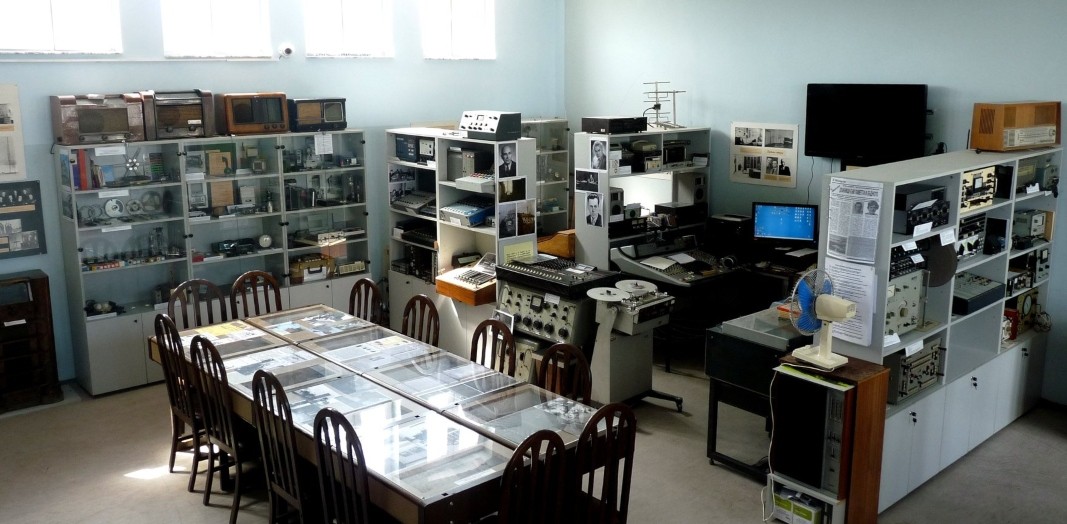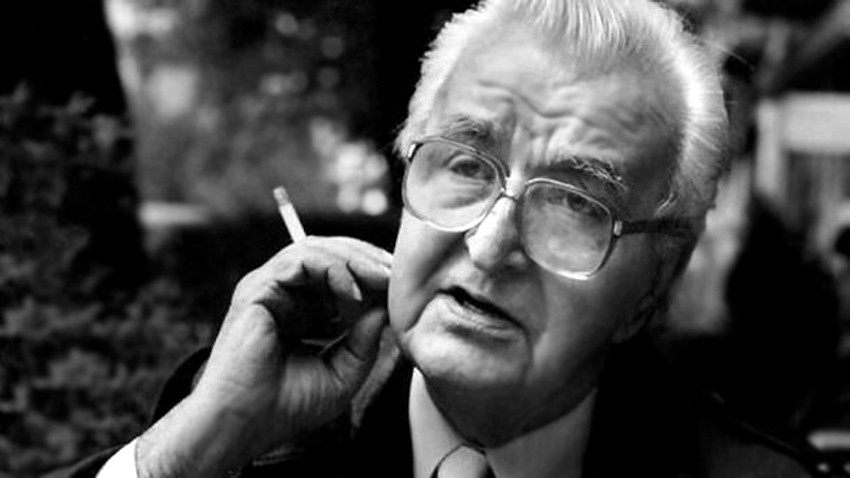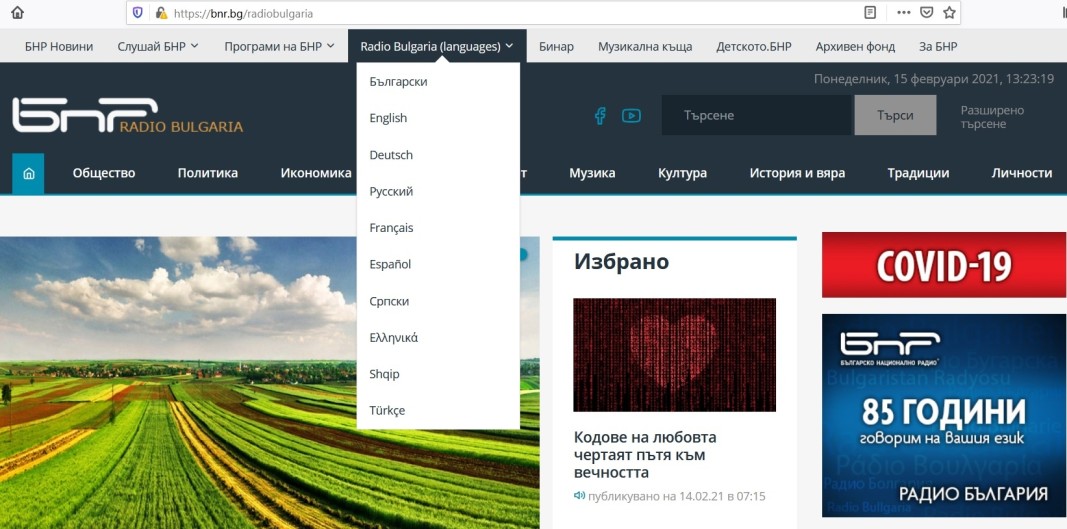On 25 January, 1935 Tsar Boris III signed a decree making radio broadcasting state-owned, and the idea for Radio Sofia to broadcast in different languages came into being several months later. So it came about that on 16 February, 1936 the first transmissions targeted at other countries were launched – in the Bulgarian language, plus news bulletins in Esperanto. And even though the BNR’s foreign-language programmes were only named “Radio Bulgaria” in 1992, it is the year in which the first broadcasts were launched that is considered to be its birthdate.
“From the very outset the engineers, technicians and editors of the radio, with first director Sirak Skitnik regarded it as a means of communication connecting Bulgarians around the world and bringing foreigners information about the country,” says Antoaneta Radoslavova-Doycheva, curator of the Museum of History of Radio in Bulgaria. The technical conditions capable of bringing this idea to fruition were created by engineer Minko Topalov and technician Kosta Adamov who adapted the radio-telegraph transmitter near Sofia’s railway station for shortwave broadcasts.

“In an interview, prominent Bulgarian intellectual Pierre Rouve (Petar Uvaliev) says that the man at the helm of the radio at the time was incredibly imaginative, so he realized that the news, translated for the palace and for other institutions can be read out on the air,” Antoaneta Radoslavova-Doycheva says. “After an audition several announcers were selected – Georges Milchev in French, Ivan Dorev in German, and Pierre Rouve (Peter Uvaliev) himself in Italian. That was how the team which presented the weekly external programmes was formed in 1937.”

To begin with the news broadcasts covered different spheres - culture, economy, sports and folklore, tourist and historical sites. The translator/announcers were no longer anonymous and their names were announced on the air, especially when they read out poetry or folk song lyrics. Interestingly, they wrote the texts for the broadcasts by hand – “in big letters and very legibly”, so as to be able to read them smoothly when they went on the air.
After the communist coup on 9 September, 1944, the broadcasts were transformed to become propaganda of the “socialist way of life”. This propaganda, targeted at other countries, was supervised by the political information department’s “External information” section, which prepared the programme in 15 foreign languages. In 1949 Macedonian-language broadcasts were launched, to “shed light on the traitorous activities of Tito’s clique”, as the terminology of the day went.

Besides news, music was an important element of the foreign-language programmes – all the more so that to begin with, it was performed live.
“The music segment in 1937 started with a 30-minute folk music concert for “the Bulgarians living outside Bulgaria”, Antoaneta Radoslavova says. “The honour to be the first concert announcer fell to singer Ivanka Miteva, a contributor to the radio programme. The concert, specifically targeted at Bulgarians abroad, was probably the result of letters sent by fellow countrymen, for whom folklore was a bond with the country where they were born. Through the years the music changed, and by 1987 when I myself started at the external service’s “Music” department, the broadcasts included all music genres. In his memoirs, the one-time director of the music department Grozdan Hristozov says that by the 1950s, folklore was not the only kind of music played, but also the symphony by César Franck.”

On 31 January, 2012, Radio Bulgaria terminated its shortwave broadcasts and migrated to the Internet. “Still, I am happy the radio’s foreign-language programmes have continued, albeit online, because the policy regarding Bulgarians abroad should be continued,” Antoaneta Radoslavova says.
Photos: archive
The diplomas from the 11th master class in radio journalism of the Bulgarian National Radio – BNR Academy were awarded at a solemn ceremony on November 14. The lectures and practical classes in modern forms of radio journalism build on the professional..
Italy investigates claims of hunting of people in Sarajevo in the 1990s The prosecutor's office in Milan has launched an investigation into shocking reports of organized "sniper safaris" in Bosnia during the war in..
Albania and Bulgaria have joined forces in the name of one more child being born. In the late afternoon of November 7, the first-ever free reproductive medicine checkups, led by Bulgarian specialists, began in the Albanian town of Korçë — a region..
From fear and doubts to joy and support – Bulgarians react differently to the upcoming introduction of the euro on January 1, 2026. For..
The Day of the Christian Family is an annual event that brings Bulgarians in Hamburg together. 2025 is no exception, with invitations having been..
Kosovo is heading for early elections after nine months of failed attempts to form a government Kosovo President Vjosa Osmani has dissolved..

+359 2 9336 661
